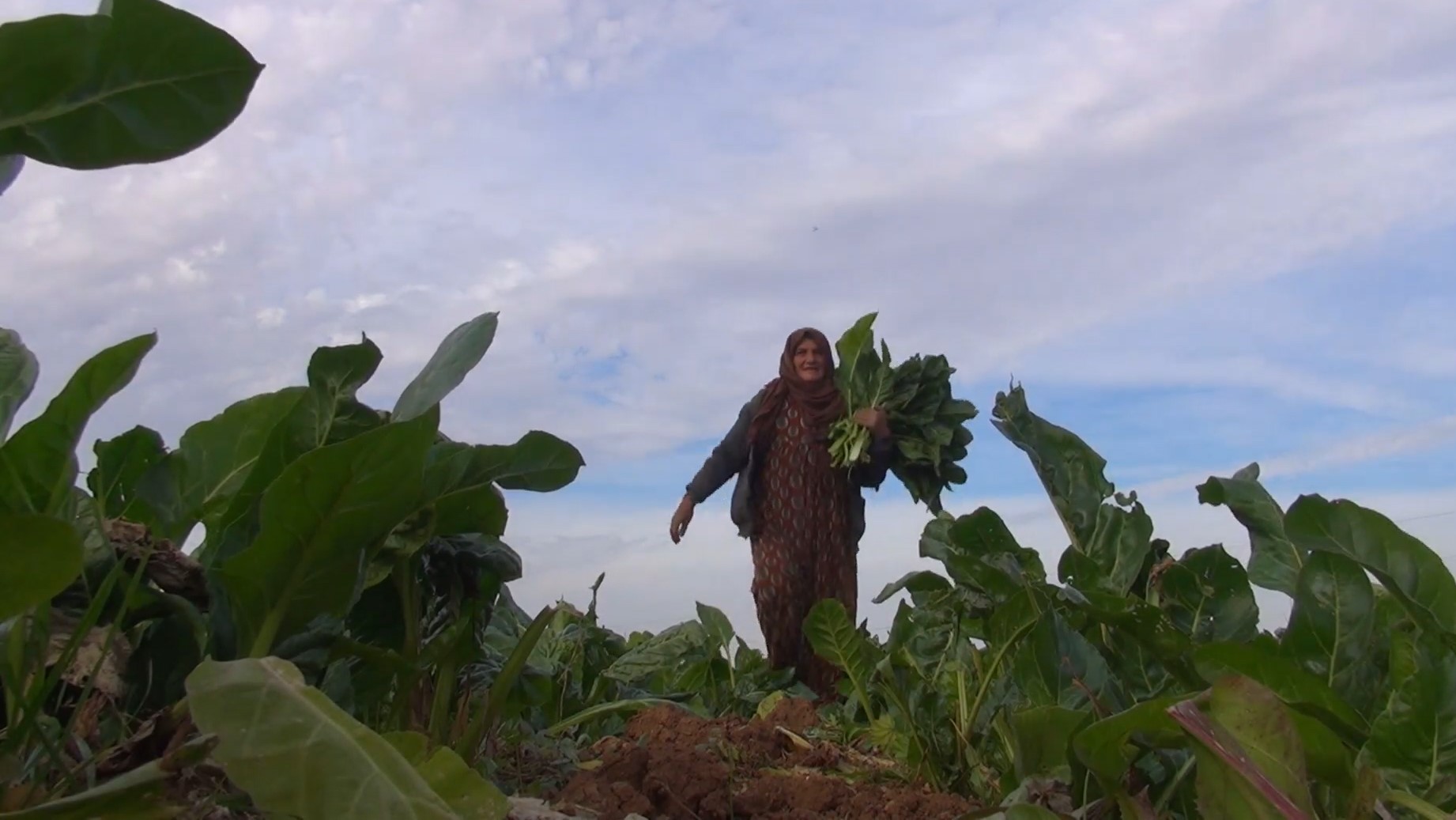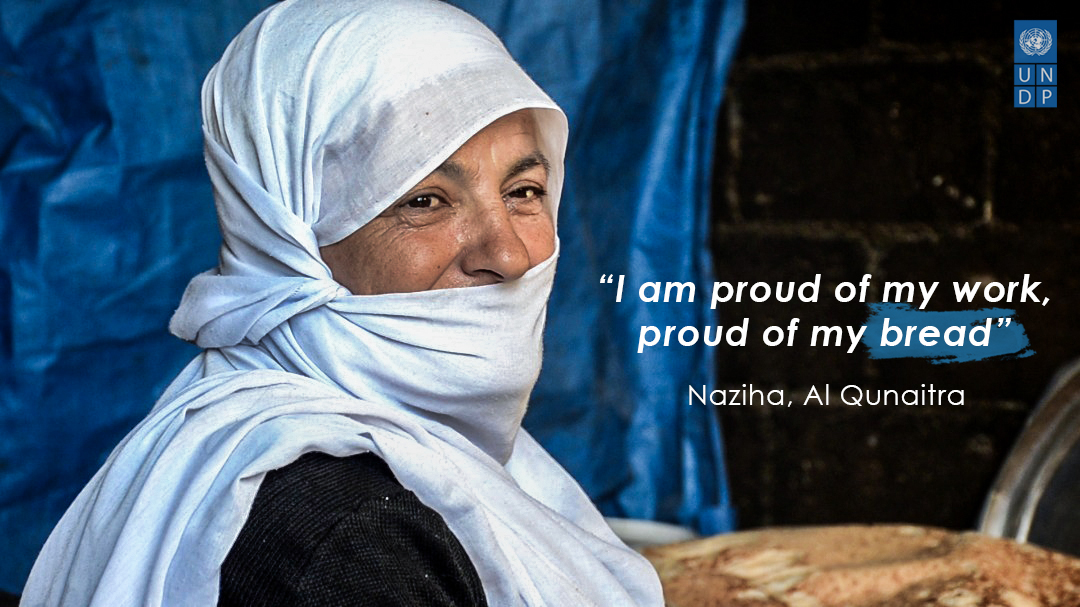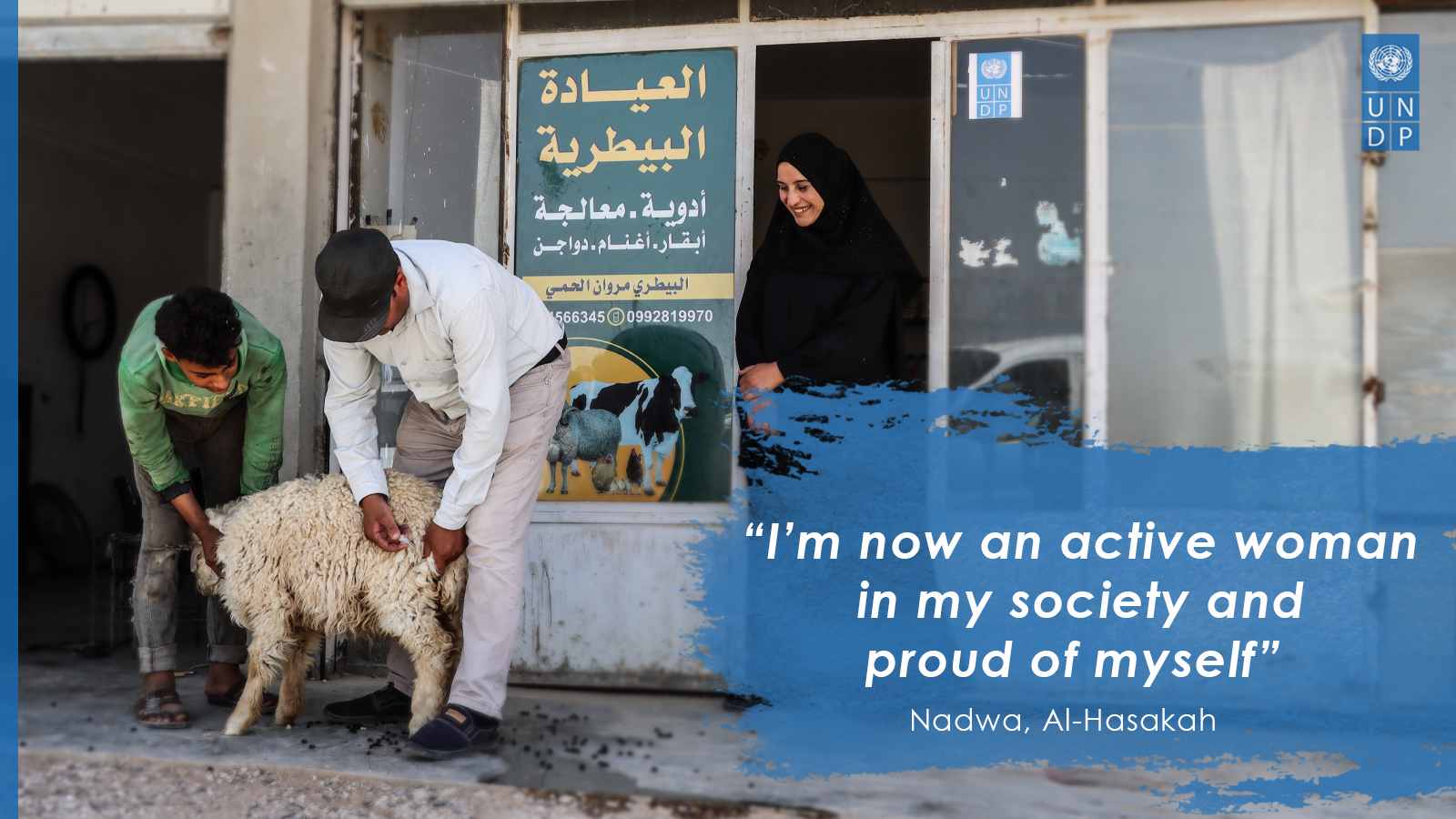Self Help Groups: A Model for Promoting Self Reliance
October 13, 2022

More than ten years of crisis have inflicted immense suffering on the Syrian population. The number of Syrians needing humanitarian assistance increased to 14.6 million in 2021. People's ability to meet basic needs has further decreased with a consistently disproportionate impact on women-headed households, older persons without family support, persons with disabilities, and children.
In September 2020, with support from the Government of Japan complemented by its own resources, UNDP Syria launched the Self-Help Groups project to empower vulnerable communities and improve their economic and living conditions.
Self-Help Groups – What are SHGs?
Self-help Groups (SHGs) are made up of 15 - 25 members of similar economic and social backgrounds who come together to improve their living conditions. Common interest and reconciliation are among the most important motivators and foundations on which the group is based. Every group chooses an executive committee, adopts its own work system, and defines its vision and general objectives. Members save regularly and periodically for small amounts to be used later in obtaining a flexible financing source.
Why SHGs?
The SHGs project aims to minimize economic and social exclusion and spread the culture of monetary saving, solidarity, and teamwork by providing small endowments to individuals to set up their own small or micro-enterprises. It works on resolving conflicts via mutual discussions and collective leadership. The project focuses on supporting the most vulnerable, particularly women-headed households, persons with disabilities and youth who do not have access to affordable financial resources. Small farmers, micro-business owners, crafts and small industries, families dependent on home income-generating projects, and street vendors are also part of the targeted group.

Naziha is 51 years old from Al Qunaitra, Syria. Naziha is the breadwinner for her family and takes care of her husband, who has special needs. Naziha is known in the area for her delicious Saj bread, a popular authentic product. She turned her baking skills into a small business that generates an income for her and the family.
Naziha did not have enough capital to acquire a furnace to increase her bread production until she joined Al-Karza, one of the Self-Help Groups in Al Qunaitra. She obtained financial support to develop and expand her business, which reflected positively on her economic and social situation.
How is it done?
Through the SHGs project, UNDP supports 24 Self Help Groups in five Governorates: Rural Damascus, Al Qunaitra, Aleppo, Al-Hasakah, and Deir Zour. The groups start saving in two funds. First, the Solidarity Fund provides grants to members who encounter emergency cases or implement social initiatives in their communities. Second, the Lending and Saving Fund which supports group members in setting up or expanding their micro and small enterprises.
The group members save regularly, and in parallel, they receive capacity development through training sessions on different thematic areas, such as by-laws, group dynamics, conflict management, group management, and non-financial business development services. The sessions enable them to adopt microfinance best practices for using their funds and develop their own structure, which in turn determines how the funds will be managed.
At the next stage, UNDP provides each Self-Help Group with a grant to enhance the financing capacities of their lending and savings funds and for the Social Fund to increase their ability to carry out social activities to improve their lives and contribute to their communities.

"I am now an active woman in my society and am proud of myself. My husband and I can now secure better living conditions for our children”, highlights Nadwa from Tal Ouda in the southern rural area of Qamishli, Al-Hasakah Syria.
Nadwa is a member of the Al-Amal group, a Self-Help Group in her town. She was granted a fund of one million Syrian pounds, which was added to her husband's capital in the veterinary pharmacy. Nadwa is a partner in the pharmacy, handling sales and keeping the pharmacy open to serve the people in her town, while her husband tours the fields attending to the livestock in the area.
Benefiting more than 2,500 people from the targeted areas, the formation of SHGs and the Social Solidarity Fund's activation greatly impacted the people and their villages. Not only has it helped improve the economic conditions, but it also had a remarkable impact on social cohesion and cooperation between the members of the groups and the people of their region. The benefits were not limited only to the group members. The fund was used to aid the region's most vulnerable, where many community initiatives have been implemented.
Around 52% of women benefited directly from the project. Their participation in discussions and decision making empowered and encouraged them to play a leading role in their communities.
Thanks to our partners, UNDP continues to support the resilience and recovery of the most vulnerable in Syria.

 Locations
Locations



